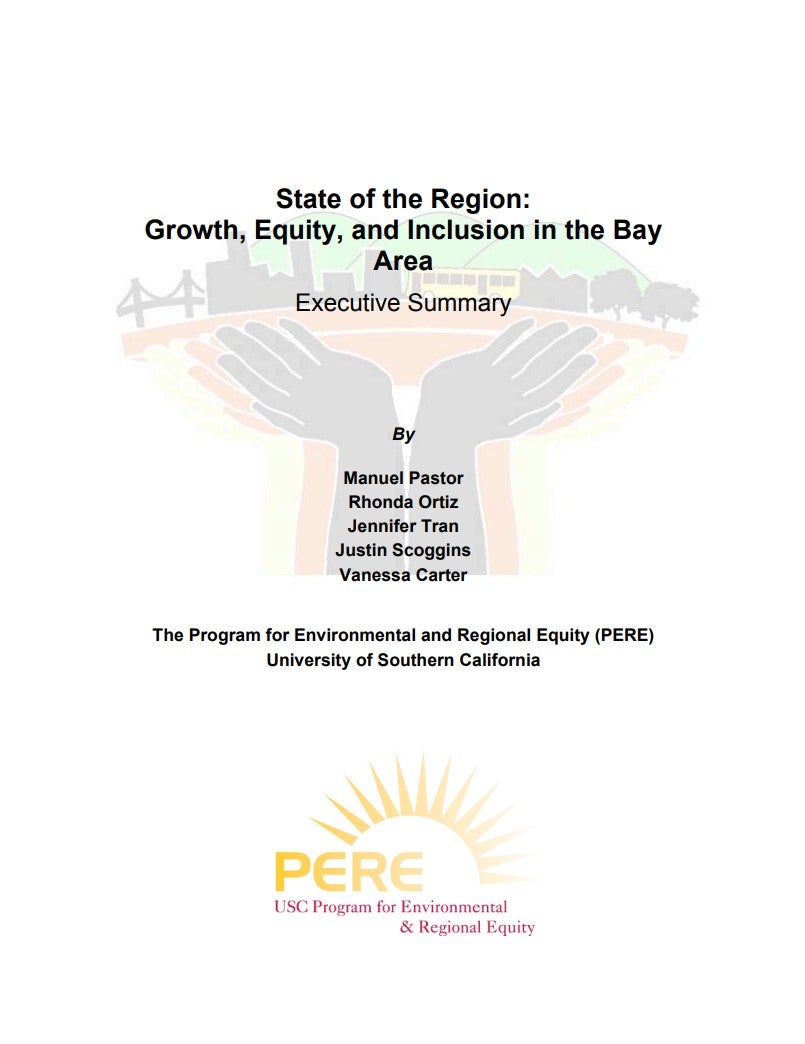
By Manuel Pastor, Rhonda Ortiz, Jennifer Tran, Justin Scoggins, and Vanessa Carter
December 2008
Please note: reports dated earlier than June 2020 were published under our previous names: the USC Program for Environmental and Regional Equity (PERE) or the USC Center for the Study of Immigrant Integration (CSII).
For the last decade, regional business and civic groups has been crafting indices to get a handle on the progress of their metropolitan areas. Many of these indices dwell on innovation and business investment but pay scant attention to issues of inclusion and equity. But making social equity a sidebar rather than a key part of the main show is exactly wrong: the latest research has shown that those metros that make more progress on reducing poverty, segregation, and inequality actually grow faster and stronger.
Because we think that keeping fairness in mind is important for our national and regional economic recovery and because our concern has long been for those fairing the least well, we have been working with Urban Habitat and others to create a regional index focused primarily on inclusion and equity. After all, if we can include all of us, we can meet our challenges; if we can bridge the Bay, we can build the Bay together.
The challenges may seem daunting but the opportunities to work and grow together are there. While gentrification threatens the region, the Bay Area is also home to groups on the cutting edge of equitable and inclusionary smart growth policies. While new leaders need to step up to the plate, organizations like Urban Habitat and Working Partnerships have been busy training residents in leadership and policy development. And while the economy is problematic, community groups have made great strides in securing community benefits agreements, advocating for living wages, and supporting the unionization of workers – and more efforts are needed to refashion education, integrate immigrants, and provide innovative re-entry programs for those that have become caught up in the criminal justice system.
Ten years ago, the Social Equity Caucus (SEC) was founded with a simple set of core ideas – that the region was where the action was, that inclusion was key to metropolitan success, and that to do this right, you needed to include the organized voice and policy ideas of those social justice advocates and community leaders closest to the ground. On this anniversary of the founding of the SEC, it is our hope that this document and the data we offer will help advocates as they continue their work to build a more prosperous, more inclusive and more sustainable Bay Area.



